
Mary Neal
Reader in Law, University of Strathclyde
Dr Mary Neal is an expert in medical law and ethics.
Her general areas of interest are in Healthcare Law, Bioethics, Legal Theory, and theories of property. Her current research focuses particularly on the law and ethics of abortion and assisted dying, conscientious objection in healthcare, and maternal-fetal issues.
Dr Neal is a former member of the BMA Medical Ethics Committee (2016-22), and a member of the editorial board of the journal The New Bioethics.
Less ![]()
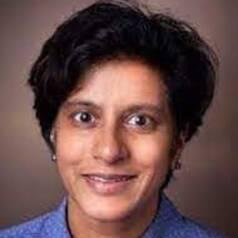
Mary Philip
Assistant Professor of Medicine and Pathology, Vanderbilt University
The immune system has enormous power to detect and eliminate pathogens; however, CD8 T cells specific for (mutated) tumor antigens found within solid tumors are often dysfunctional, allowing tumors to progress. Hallmarks of tumor-specific T cell (TST) dysfunction in mice and humans include the expression of inhibitory receptors (e.g. PD1, CTLA4) and loss of effector function. The clinical success of immune checkpoint blockade and adoptive T cell therapy in some cancer patients demonstrates the potential of TST to mediate anti-tumor responses; however, important challenges and questions remain, including how to predict which patients will respond to therapy and how to design new immunotherapies for those patients who do not respond.
My research program utilizes clinically-relevant genetic cancer mouse models to understand the molecular and epigenetic regulatory mechanisms underlying TST dysfunction and design cutting-edge strategies to override TST dysfunction to improve cancer immunotherapy. Projects aim to (i) elucidate the mechanisms driving early TST dysfunction, (ii) determine how antigen chronicity drives dysfunction programming in TST, and (iii) design and test strategies, including epigenome editing, to reprogram dysfunctional TST for immunotherapy. We showed that even highly-functional memory T cells differentiate to a conserved dysfunctional chromatin state in tumors; thus, successful immunotherapy will require a multi-pronged strategy aimed at shifting dysfunctional TST out of the dysfunctional chromatin state and “bullet-proofing” these reprogrammed TST to prevent reversion to the dysfunctional state.
Less ![]()
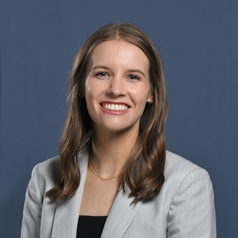
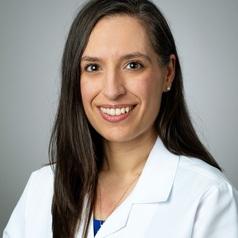
Mary Scourboutakos
Family Medicine Resident and Nutrition Expert, Eastern Virginia Medical School
Mary Scourboutakos is a “double-doctor” devoted to nutrition and disease prevention. After becoming interested in nutrition as a result of a science fair project, she completed a PhD in Nutritional Sciences. She then completed medical school and a family medicine residency at the University of Toronto. She is currently pursuing additional training at the Eastern Virginia Medical School. Her research has been published in prestigious medical journals including JAMA Internal Medicine and the American Journal of Preventive Medicine. Mary is passionate about translating nutrition science into clinical settings and she lectures widely both inside and outside of academia. Her nutrition prescriptions can be found at: www.nutrition-prescriptions.com
Less ![]()
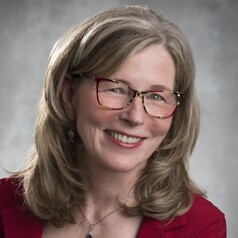
Mary Wells
Dean, Faculty of Engineering, University of Waterloo
Mary Wells P.Eng, Ph.D. is the Dean of Engineering at the University of Waterloo, Canada's largest engineering school. Professor Wells is a professor of materials engineering in Waterloo's Department of Mechanical and Mechatronics Engineering and she is currently the Chair of Engineering Deans Canada. Professor Wells has established her reputation as a leader who understands and promotes the need for a diversity of perspectives and approaches in the engineering profession and the University more broadly.
An accomplished and award-winning materials engineer, her research focuses on the relationship between processing, structure and properties of advanced metallic alloys used in the transportation sector. Wells began her academic career as a professor in materials engineering at the University of British Columbia and has worked in the steel industry in Canada and internationally.
Less ![]()
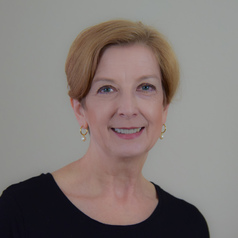
Mary Angela Bock
Associate Professor of Journalism, The University of Texas at Austin
Mary Angela Bock is an associate professor in the University of Texas at Austin School of Journalism. She is a former journalist with an interest in photographic practice, the relationship between words and images, and digital media. She is particularly concerned with matters of truth and authenticity in the process of image production. Her work can be found in the Journal of Communication, Visual Communication Quarterly, and other publications. Her latest book, Seeing Justice: Witnessing, Crime, and Punishment (Oxford, 2021) theorizes the relationship between media and the state in the production of visual representations of crime, the courts, and justice.
Seeing Justice won the Diane S. Hope Book of the Year award from the National Communication Association's Visual Communication Division.
Bock also co-authored Visual Communication Theory and Research (Palgrave, 2014) with Shahira Fahmy and Wayne Wanta. Her 2012 book, Video Journalism: Beyond the One-Man Band studied the relationship between solo multi-media practice and news narrative
Less ![]()
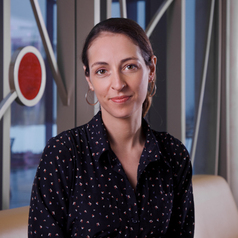
Mary Beth Collins
Executive Director of the Center for Community and Nonprofit Studies, University of Wisconsin-Madison
I bring to this role a passion for understanding and improving the role of the “third sector” and decades of experience working as a teacher, attorney, and nonprofit director. The binding theme of my career and volunteer experiences is the advancement of the well-being of all communities, families, and mission-based enterprises.
At the Community and Nonprofit Studies (CommNS), I leverage university assets in collaboration with community partners to promote and prepare change agents to support a better third sector, a better Wisconsin, and a better world. In addition to leading the CommNS and directing its research, outreach, and educational mission, I have developed and delivered coursework and other educational experiences for students and community partners in the CommNS network. These offerings include graduate-level School of Human Ecology Professional Skills Courses, including nine 1-credit courses, each focused on a different key topic relevant to preparing future change agents for their careers; the Capstone Certificate Program in Community and Nonprofit Leadership; a Board Development course that places students with nonprofit boards of directors; a Community and Nonprofit Operations and Infrastructure course; and a variety of service learning and professional development opportunities. All of these course offerings bring community and practitioner wisdom to the classroom and prepare students for their careers as effective change agents in a complex world.
Less ![]()
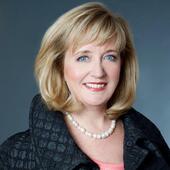
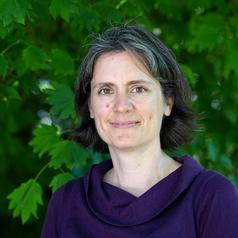
Mary I. O'Connor
Professor, Department of Zoology, University of British Columbia
Marine ecologists studying biodiversity change and climate impacts on Canada's coastal ecosystems
Less ![]()
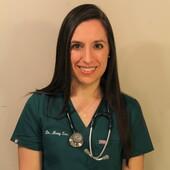
Mary J. Scourboutakos
Adjunct Lecturer in Family and Community Medicine, University of Toronto
Less ![]()
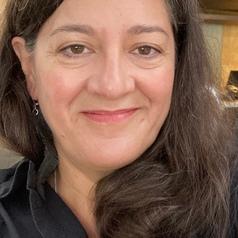
Mary Jane Logan McCallum
Professor of History, University of Winnipeg
I am Professor of History and Canada Research Chair in Indigenous People, History and Archives at the University of Winnipeg and a band member of the Munsee Delaware Nation. I am part of the editorial board member of ShekonNeechie: An Indigenous History Site (https://shekonneechie.ca), and member of the Munsee Delaware Language and History Group. I research modern Indigenous histories especially in the areas of education, health and labour.
Less ![]()

Mary Katherine Newman
PhD candidate, University of Oxford
Mary is a PhD student at the University of Oxford. Her research focuses on the five senses in the accounts of the conquest of Chile. She also holds an MPhil in Latin American Studies from the University of Cambridge, where she specialised in modern Chilean politics.
Less ![]()

Mary L. Churchill
Associate Dean, Strategic Partnerships and Community Engagement and Professor of the Practice, Boston University
Dr. Mary L. Churchill is Professor of the Practice and associate dean of strategic partnerships and community engagement at Boston University's Wheelock College of Education and Human Development where she also serves as Director of the Higher Education Administration program. Churchill serves as a trustee at Benjamin Franklin Cummings Institute of Technology, a 4-year minority-serving college in Boston, where she chairs the academic affairs committee. She also serves as an advisor for the American Council of Education’s Learner Success Lab. Churchill co-authored When Colleges Close: Leading in a Time of Crisis, telling the story of the Wheelock-Boston University merger. Prior to her appointment at Boston University, Churchill served as vice president for academic affairs at Wheelock College, where she helped lead the merger of Wheelock College and Boston University. She has also held leadership roles in universities and colleges in New England for over 30 years.
In 2021, Churchill served as the Chief of Policy for Mayor Kim Janey in Boston where she supported the launch of the mayor’s Children’s and Youth Cabinet, led the development of an alternative response to 911 calls for mental health emergencies, and coordinated the implementation of a city-wide COVID-19 mask mandate. Upon her return to BU, she co-chaired the Boston Career and College Pathways Partnership working group with Harvard’s Project on Workforce.
Less ![]()
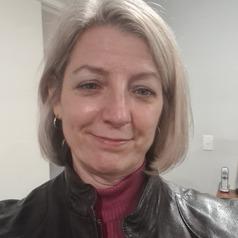
Mary Lou Chatterton
Senior research fellow, Monash University
Mary Lou Chatterton is a senior research fellow and deputy leader of the Mental Health Economics Stream at Monash University Health Economics Group.
Her research focuses on the economics of mental health mainly economic evaluations of novel ways to prevent and treat substance use and mental health conditions including anxiety, depression, and bipolar disorders. This has included evaluating medications, psychological therapies, dietary/lifestyle interventions and online systems.
Less ![]()
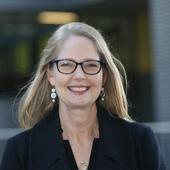
Mary Louise Stewart
Senior Career Medical Officer, Northern Sydney Local Health District; PhD Candidate, University of Sydney
Less ![]()
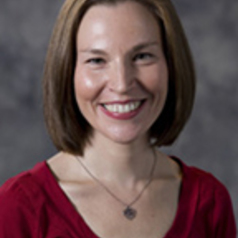
Mary M. McCarthy
Professor of Political Science, Drake University
Mary M. McCarthy, Professor of Political Science, teaches numerous regional courses on the politics and international relations of Japan, China, and East Asia, as well as topical courses in world and comparative politics. She received her B.A. in East Asian studies and her Ph.D. in political science from Columbia University.
Dr. McCarthy specializes in Japan’s domestic and foreign policies. She has published on topics including the Japanese media, and cooperation and conflict between Japan and China in the East China Sea. Her current research examines the historical legacies of the Asia-Pacific War on Japan-U.S., Japan-China, and Japan-Korea relations. She is also a Mansfield Foundation U.S.-Japan Network for the Future Scholar.
Besides her teaching and research, Dr. McCarthy enjoys mentoring students to help them to have the most enriching experience both at Drake and beyond. In this capacity, she advises students on post-graduate opportunities in Asia, including teaching English in Japan through the prestigious Japan Exchange and Teaching Program (JET).
Less ![]()
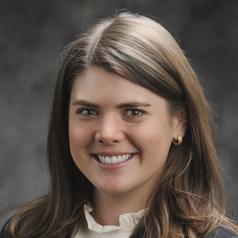
Mary Nelson Robertson
Assistant Professor of Human Development and Family Science, Mississippi State University
Mary Nelson Robertson, PhD, CHES, is an Assistant Professor of Human Development and Family Science at Mississippi State University. Dr. Robertson has a passion for improving the health and well-being of rural populations. Her research interests include farm stress prevention, farm family well-being, food insecurity, mental health, and opioid misuse prevention. Dr. Robertson earned a PhD in Human Development and Family Science at Mississippi State University. She also earned a bachelor’s and master’s degree in health promotion and health education at the University of Alabama. She is a Certified Health Education Specialist by the National Commission for Health Education Credentialing.
Less ![]()

Mary Ni Lochlainn
Specialist Registrar in Geriatric and General Internal Medicine, and Post Doctoral Research Fellow, King's College London
MB BCh BAO MRCP(UK) PGcert PhD
Less ![]()
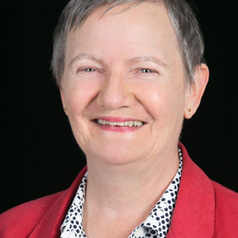
Mary P. Coupland
Associate Professor in Mathematics and Mathematics Education, University of Technology Sydney
After completing a Bachelor of Science and a Diploma in Education at University of Sydney, I taught Mathematics in Secondary Schools in Sydney for ten years. I then taught Mathematics and Mathematics Education for a couple of years and completed a Masters of Education, then a PhD in Mathematics Education. I have been at UTS since 1990.
Less ![]()
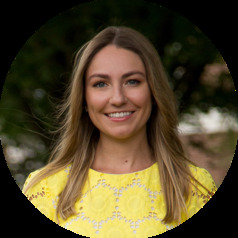
Mary-Claire Ball
PhD student, Developmental Psychology and Education, University of Toronto
Mary-Claire Ball is a third year PhD student in the Developmental Psychology and Education program at the Ontario Institute for Studies in Education at the University of Toronto. She holds an MA in linguistics and cognitive science from the University of Delaware and a BS in diplomacy and international relations from Seton Hall University.
Mary is interested in children’s literacy development in multilingual contexts, where children are learning to read in a language they may not speak at home. Her current doctoral research explores how disruptions in children’s schooling may affect their second language and literacy development.
Less ![]()
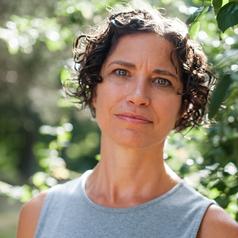
Mary-Jane Rubenstein
Dean of Social Sciences, Professor of Religion and Science and Technology Studies, Wesleyan University
Rubenstein is the author of Astrotopia: The Dangerous Religion of the Corporate Space Race (Chicago, 2022); Pantheologies: Gods, Worlds, Monsters (Columbia, 2019); Worlds Without End: The Many Lives of the Multiverse (Columbia, 2014); and Strange Wonder: The Closure of Metaphysics and the Opening of Awe (Columbia, 2009). She is also co-author with Thomas Carlson and Mark C. Taylor of Image: Three Essays in Technology and Imagination; and co-editor with Catherine Keller of Entangled Worlds: Religion, Science, and New Materialisms (Fordham, 2014).
Her work has been featured on BBC radio and television, National Public Radio, and the Institute for Arts and Ideas; and she has published articles in The New Scientist, Nautilus, Gizmodo, and The Revealer. She is the recipient of numerous teaching awards; recipient of the Iris Book Award in Science, Religion, and Technology; and co-PI of the "Sacred Space" project through Arizona State University's Interplanetary Initiative.
Less ![]()

Mary-Kate Lizotte
Professor of political science, Augusta University
Mary-Kate Lizotte is an expert in public opinion and is an expert in gender in politics and voting.
Less ![]()
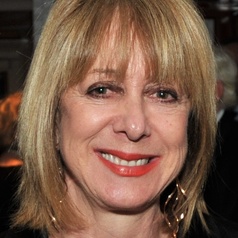
Mary-Louise McLaws
Professor of Epidemiology Healthcare Infection and Infectious Diseases Control, UNSW Australia
Professor Mary-Louise McLaws is an epidemiologist who's expertise is infection control and prevention. She works in collaboration with the World Health Organization Advisor and the Clinical Excellence Commission providing advise on infection control programs and interventions to improve patient safety. Mary-Louise has partnered on patient safety improvement projects in Vietnam, Cambodia, Indonesia, Taiwan, China, Malaysia, and Turkey.
Less ![]()

Mary-Rose McLaren
Professor of Teaching and Learning and Head of Program, Early Childhood Education, Victoria University
Less ![]()

Marya T. Mtshali
Lecturer in Studies in Women, Gender, and Sexuality, Harvard University
Marya T. Mtshali, Ph.D. is a Lecturer in Studies in Women, Gender, and Sexuality at Harvard University and an Associate Director within the PhD Network at Northeastern University. Previously, she was Assistant Professor of Sociology at Bucknell and a Postdoctoral Research Fellow at Harvard Kennedy School. Her areas of expertise include race, class, and gender, as well as American inequality and qualitative research. She is currently working on her book manuscript "(In)Visible Terrains: Racialized Heteronormativities in the World of Black-White Interracial Couples."
Less ![]()
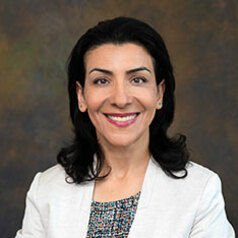
Maryam Imani
Associate Professor of Water Systems Engineering, Anglia Ruskin University
Maryam is a Charted Civil Engineer and attained her BEng (Hons) degree in Civil Engineering in 2001 and worked as a structure engineer in industry for three years. She left practice to academia to complete her MEng degree in Water Systems Engineering in 2005 and simultaneously worked as a part-time researcher in the water industry.
Maryam achieved her PhD in Water Systems Engineering from University of Exeter in 2012. Her PhD project (funded by Exeter University Research Scholarship (ERS) award), titled Modelling the Performance of an Integrated Urban Wastewater System (IUWS) under Future Conditions (climate change and urbanisation, focused on development of novel risk-based and non-risk-based optimisation models to improve the operational control and design of IUWS under climate change and urbanisation.
In her PhD, Maryam also developed the novel meta-model 'MOGA-ANNβ' by combining Genetic Algorithm and Artificial Neural Network to tackle complexity and time-demanding nature of integrated modelling of urban wastewater system Additionally, Maryam worked as an Associate Lecturer at INTO University of Exeter when she was a PhD student in Exeter University.
Upon her PhD completion, she was appointed as Associate Research Fellow in the EPSRC-funded project Safe&SuRe Water Management at the Centre for Water Systems, University of Exeter. Maryam worked with the team to develop a new paradigm for safe, sustainable and resilient water management in response to emerging challenges and global uncertainties. She has been a Visiting Research Fellow in the University of Utah in the US as part of ‘Clean Water for All, UK-US Collaboration’ project, funded jointly by EPSRC & NSF.
Maryam joined ARU in 2015 and is currently an Associate Professor of Civil Engineering (Water Systems Engineering) in the School of Engineering and the Built Environment. Maryam currently leads several modules and have been involved in research projects as PI, CO-PI and Co-I since joining ARU.
Less ![]()
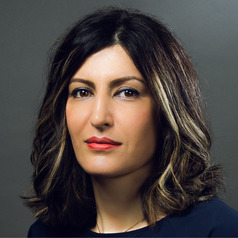
Maryam Naebe
Associate professor, Deakin University
Assoc/Prof Maryam Naebe is a material scientist with extensive experience in fibre science. She is the recipient of Discover Natural Fibre Initiative Innovation Award (DNFI 2021). Her research focuses on sustainability inspired innovation using waste materials and adding value to natural fibres, textile wastes and biomass as new resources for circular economy and sustainable industrial applications.
Less ![]()
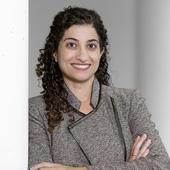
Maryam Z. Deloffre
Associate Professor of International Affairs, George Washington University
Less ![]()
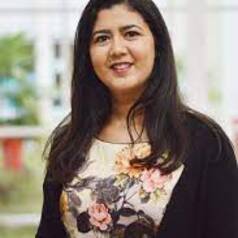
Maryem Cherni
Enseignant-chercheur en Stratégie et Innovation, UniLaSalle
Maryem CHERNI, Enseignant-Chercheur Dr. en Stratégie d’entreprise et Management de l’Innovation à l’Institut Polytechnique UniLaSalle, site de Beauvais. Membre de l’unité de recherche INTERACT.
Après avoir étudié différents secteurs d’activité, le sens de ma démarche actuelle est de s’intéresser en particulier à l’agriculture et à l’agroalimentaire. Mon objectif est de contribuer aux travaux sur l’entrepreneuriat agricole et sur la pérennité des entreprises agricoles. Plus particulièrement, je me penche sur la contribution des innovations collaboratives, sur la gestion du volet relationnel entre les acteurs, notamment la confiance, et les stratégies d’innovation dans ces deux secteurs d’activités. Les conférences dans lesquelles j'ai participé, ainsi que mes publications, témoignent de mon rapprochement des communités de chercheurs en sciences de gestion et en agronomie.
Je suis également co-coordinatrice et membre de la branche européenne du réseau international IFAMA (International Farm and Agrifood Management Association), reviewer de sa revue IFAMR, membre de IFERA International Family Enterprise Research Academy, membre et reviewer pour l’AIMS (Association Internationale de Management Stratégique), l’AOM Academy of Management, International Journal of Entrepreneurial Venturing.
Less ![]()
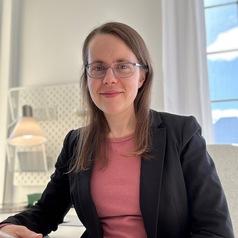
Maryse Côté-Hamel
Assistant Professor of Consumer Sciences, Université Laval
I am a consumer behaviour specialist passionate about consumer education. I have studied, worked and taught in both French and English. I hold a Ph.D. in marketing from Concordia University.
I am passionate about consumer education and responsible consumption. I wish to contribute to the development of strategies aimed at helping consumers make decisions aligned with society, the planet and their long-term interests and well-being.
I am particularly interested in the management of financial resources (e.g. planning/impulsivity, spending), material resources (e.g. possessions, minimalism) and temporal resources (e.g. time management, time of day, sleep).
My approach is part of the “Transformative Consumer Research” movement.
Less ![]()

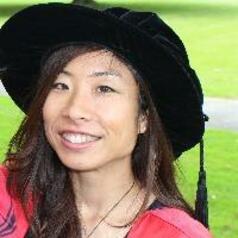
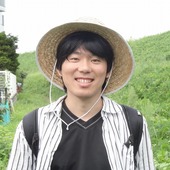
Masayoshi K. Hiraiwa
Postdoctoral Researcher, Ecology, Faculty of Agriculture, Kindai University
Less ![]()
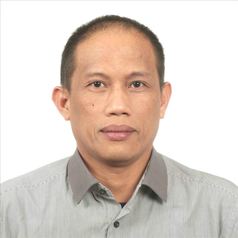
Masduki Masduki
Pengajar dan Peneliti Kebijakan Media di Program Studi Ilmu Komunikasi, Universitas Islam Indonesia (UII) Yogyakarta
Masduk menjadi dosen tetap di Program Studi Ilmu Komunikasi Universitas Islam Indonesia (UII) sejak tahun 2004-sekarang. Menekuni studi-studi kebijakan media; perbandingan tata kelola komunikasi dan media publik; dan aktivisme media. Beberapa karya tulis sudah pernah dimuat di jurnal bereputasi internasional terindeks Scopus seperti GAZETTE, Journalism Studies dan Journal of Digital Media Policy.
Less ![]()
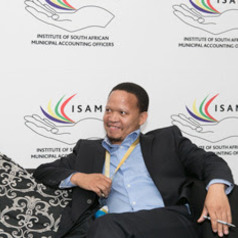
Mashupye Herbert Maserumule
Professor of Public Affairs, Tshwane University of Technology
With twenty(20) years of teaching experience in different universities in South Africa, Maserumule is an experienced researcher. His areas of research interest include, among others, the Historiography, Ontology and Epistemology of Public Administration, Developmental State, Politics of Transition, Pan-African Thought and Philosophy of Governance.
Less ![]()
- Market Data























